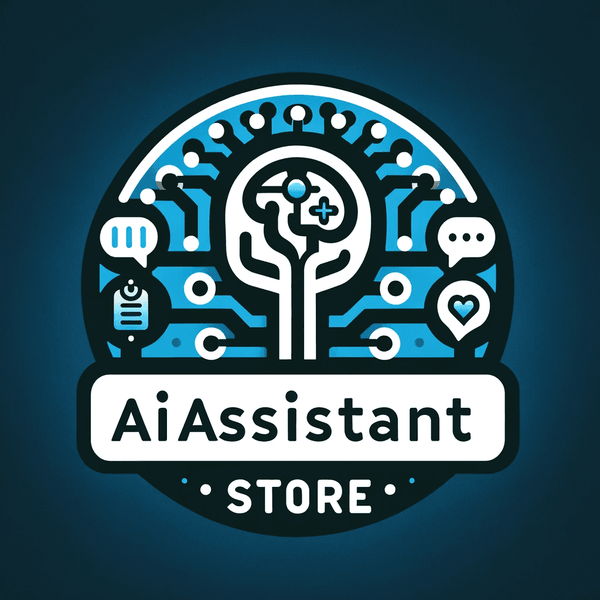Short version: yep, you can absolutely publish a book written by AI. The bigger story is how you do it - staying inside platform rules, dodging copyright potholes, and not putting out something that feels like cardboard. That’s where most people trip. So let’s walk it through, start to finish, with some unglamorous reality checks you’ll actually lean on.
Articles you may like to read after this one:
🔗 AI for writing letters: Best picks
Top AI assistants for crafting clear, professional, personalized letters.
🔗 What is the best AI for writing
Comparison of top AI tools for essays, blogs, and reports.
🔗 Top 10 AI tools for research paper writing
Best AI software to speed up research and academic writing.
What Makes AI-Written Books Actually Work 😅
Here’s the harsh truth: most AI books fail for boringly human reasons - weak ideas, clunky structure, lazy edits. The ones that click nail three things:
-
Human steering: you outline, shape the voice, and step in where it matters. Think: AI drafts, you conduct.
-
Transparency when asked: follow retailer disclosure rules. Readers don’t like sneaky surprises. (Amazon KDP splits “AI-generated” from “AI-assisted” and makes you tick a box for the former at upload [1].)
-
Boring-but-essential quality passes: fact check, sensitivity read, originality check, and a proper copyedit. Dull, yes. Crucial, also yes.
Platforms are clearer about this now: disclose AI use where required and make the book actually good. Amazon asks during upload; Apple Books takes it further, requiring you to mark AI-generated material in the metadata if a material portion comes from AI [1][2].
The Big Question: can you publish a book written by AI?
Short answer again: yes, on all major retailers - if you respect their rules, disclose honestly, and skip prohibited stuff. Apple Books even hard-codes transparency into metadata for material AI contributions [2]. Other stores mostly hammer on quality and anti-spam policies. Translation: if the book is readable and your metadata isn’t shady, you’re fine.
Not thrilling, I know. But “craft plus honesty” usually beats clever prompts anyway.
Keyphrase check-in: can you publish a book written by AI - and still own it?
Here’s the non-lawyer nutshell. In the US, copyright lives and dies on human authorship. The Copyright Office lets you register your contributions (your text, editing, arrangement), but not the purely machine parts. And you’re supposed to flag AI-generated chunks when filing [3].
The UK? Slightly different. Their law has a quirk for computer-generated works: it treats the “author” as whoever arranged for the work to be made [4]. It’s not a free pass, but it’s a real statutory path. Bottom line: jurisdiction matters if you want to lean on copyright.
One extra wrinkle: OpenAI (and others) say you own the outputs between you and them, subject to local law. Nice for contracts, not a magic override for national rules [5].
Publishing Platforms: where, how, and why it matters
| Tool / Platform | Best for | Price-ish | Why it works |
|---|---|---|---|
| Amazon KDP | Reach + ebooks + print | Free upload | Huge market, checkbox disclosure for AI-generated. Tick it, sleep better. [1] |
| Apple Books | Design-conscious readers | Free upload | Transparency baked into metadata. A bit strict but clear. [2] |
| Google Play Books | Android ecosystem | Free upload | Quality + metadata accuracy. Don’t dump low-effort content. |
| Kobo Writing Life | Canada + intl readers | Free upload | Pro-author vibe; emphasis on quality + trust. |
| Draft2Digital | Easy wide distro | Rev-share | Distributes broadly. Only works if your book itself is decent. |
| IngramSpark | Bookstores + libraries | Upload + print costs | Serious print distribution. Watch fees + printing costs. |
| Formatting tools | Vellum, Atticus, Scrivener | One-time / license | Cleaner interiors than Word. Readers (and reviewers) notice. |
| Editorial help | Reedsy marketplace | Per-project | Real editors make AI drafts actually stand up. Worth it. |
Bit uneven? Sure. But so is publishing.
How to avoid stepping on rakes 🧹
-
Own the outline - chapters, reader goals, tone. Weak outline = chaotic draft.
-
Draft with AI like it’s your intern - quick with first passes, weak on nuance. Supervise.
-
Rewrite heavy - fix voice, logic, specificity. Collapse repetition. Add lived-in details.
-
Fact check + sensitivity read - legal, medical, biographical? Verify. Don’t trust vibes.
-
Originality + permissions - run checks, confirm image/data rights, double-check AI cover terms.
-
Disclose correctly
-
KDP: tick AI-generated if used. AI-assisted = no disclosure. [1]
-
Apple Books: label material AI in metadata. [2]
These are ten-second tasks that save future migraines.
-
-
Format clean - EPUB or print-ready PDF. TOC, styles, fonts, alt text.
-
Price smart - check niche comps. Intro price works, but don’t live in bargain-bin land.
Copyright clarity 🔒
-
US: no copyright for purely machine text. Human contributions (arrangement, edits, selection) are protectable. Disclosure required in registration [3].
-
UK: statute lets the arranger be treated as the author for computer-generated works [4].
-
Providers: OpenAI terms grant you output rights (between you and them), but law still rules [5].
If copyright enforcement is central to your strategy: add more human input than you think you need.
Marketing without weird vibes 📣
-
Be transparent but not apologetic. A quick workflow note in back matter builds trust.
-
Lead with results: readers buy benefits, not your process.
-
Reviews and samples sell more than explanations. If the book’s good, the preview proves it.
-
Go beyond stores: newsletters, podcasts, short-form content. AI doesn’t erase the need for visibility.
Quick Craft Checklist ✅
-
Outline passes the “next-morning sanity” test
-
Human rewrites at chapter level
-
Facts checked + sources verified
-
Originality scan run
-
Accessibility pass: headings, alt text, fonts
-
Retailer disclosures done
-
Metadata real + keyword-smart
-
Launch plan beyond “just upload”
Platform & Law: must-knows
-
Amazon KDP: disclosure mandatory for AI-generated, not AI-assisted [1].
-
Apple Books: material AI portions must be labeled in metadata [2].
-
US copyright: requires human authorship; AI parts disclosed [3].
-
UK: arranger can be “author” under statute [4].
-
OpenAI: assigns rights to you (as between you and them) [5].
Human-in-the-loop that actually works 🎶
Three-pass system:
-
Idea pass - brainstorm with AI, prune clichés yourself.
-
Draft pass - AI expands bullets, you trim + specify.
-
Voice pass - add humor, sharpen flow, throw in one odd simile.
Chapters need rhythm. AI doesn’t breathe. You do.
AI extras: covers, audio, visuals 🎨🎧
AI covers and images are fine on many stores if disclosed and polished. Some audiobook distributors now accept AI narration, provided it’s labeled. If your crowd dislikes synthetic voice, go human later. Transparency = fewer bad reviews.
Print distribution without headaches 🖨️
KDP covers Amazon; IngramSpark covers bookstores + libraries. Simple recipe. Upload interior PDF, cover PDF, or EPUB.
Pro tip: order a proof. Margins betray you when you least expect it - like socks vanishing in a dryer.
SEO corner: ranking with an AI-written book
Yes, you can. Search engines want clarity + usefulness, not “what tool you used.” If the book delivers, you’re fine. Sprinkle the keyphrase can you publish a book written by AI a few times, but don’t casserole it.
You can publish an AI-written book. The real difference comes from the human layer - structure, judgment, voice. Follow disclosure rules, understand copyright basics, and obsess over reader value. The rest? Logistics. And probably coffee.
Quick gut check: would you still recommend this book, name on cover, to a friend? If yes, ship it.
TL;DR
-
Yes, you can publish an AI-written book.
-
Disclose AI where asked.
-
US = human authorship only; UK = arranger rule. [3][4]
-
OpenAI terms give you output rights, subject to law [5].
-
Human editing + good formatting make it shine.
-
Readers care about value, not workflow.
References
-
Amazon KDP - Content Guidelines (AI disclosure & definitions): https://kdp.amazon.com/help/topic/G200672390
-
Apple Books - Formatting & Content Guidelines (AI-Generated Content Transparency): https://help.apple.com/itc/applebooksstoreformatting/en.lproj/static.html
-
U.S. Copyright Office - Policy Statement: Works Containing Material Generated by AI (Mar 16, 2023): https://www.copyright.gov/ai/ai_policy_guidance.pdf
-
UK Copyright, Designs and Patents Act 1988 - Section 9(3) (computer-generated works): https://www.legislation.gov.uk/ukpga/1988/48/section/9
-
OpenAI Terms of Use - Ownership of Input/Output: https://openai.com/policies/row-terms-of-use/

